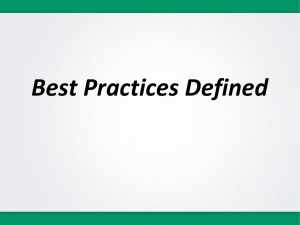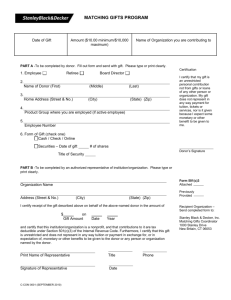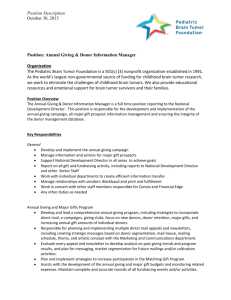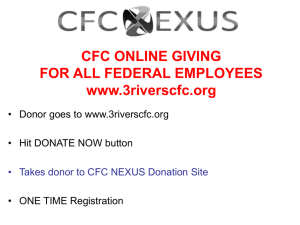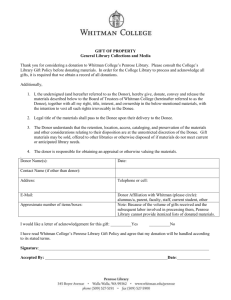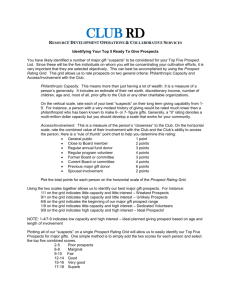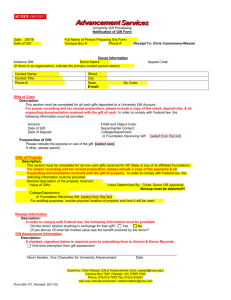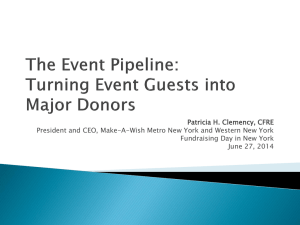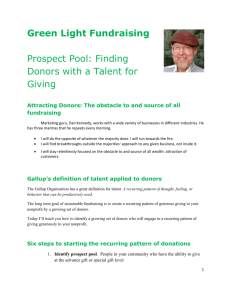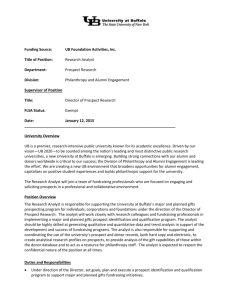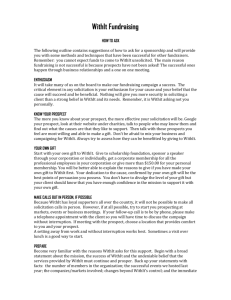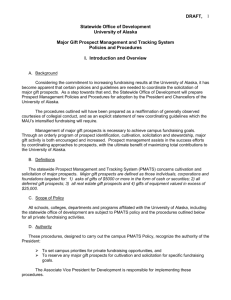Tips on Asking for Money
advertisement
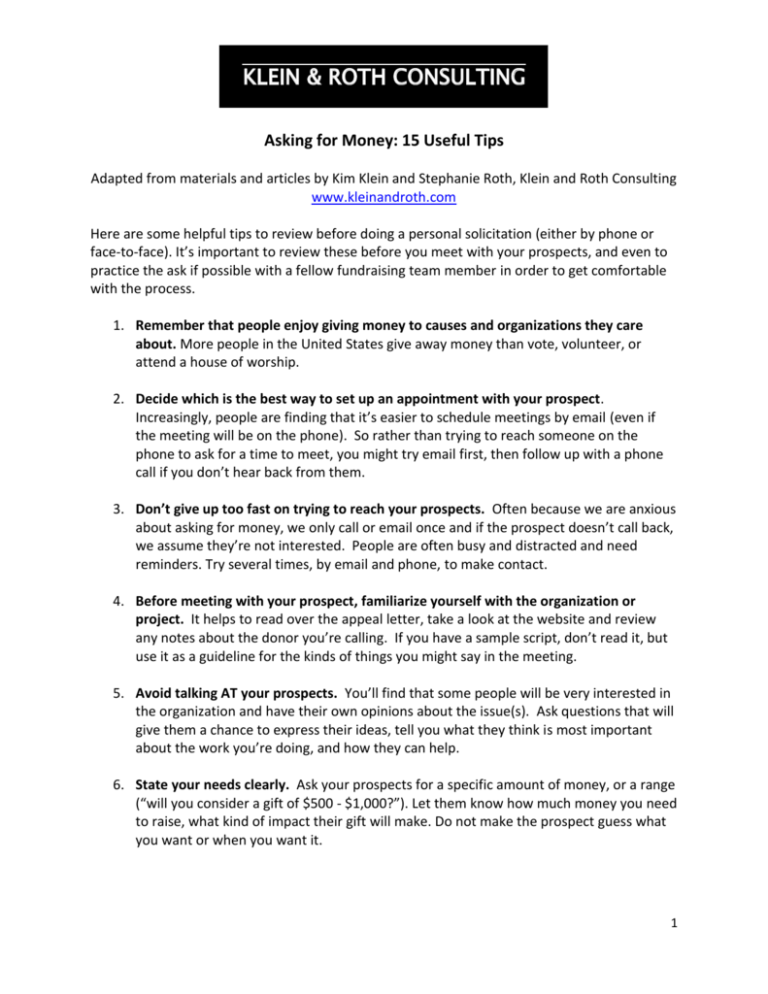
KLEIN & ROTH CONSULTING Asking for Money: 15 Useful Tips Adapted from materials and articles by Kim Klein and Stephanie Roth, Klein and Roth Consulting www.kleinandroth.com Here are some helpful tips to review before doing a personal solicitation (either by phone or face-to-face). It’s important to review these before you meet with your prospects, and even to practice the ask if possible with a fellow fundraising team member in order to get comfortable with the process. 1. Remember that people enjoy giving money to causes and organizations they care about. More people in the United States give away money than vote, volunteer, or attend a house of worship. 2. Decide which is the best way to set up an appointment with your prospect. Increasingly, people are finding that it’s easier to schedule meetings by email (even if the meeting will be on the phone). So rather than trying to reach someone on the phone to ask for a time to meet, you might try email first, then follow up with a phone call if you don’t hear back from them. 3. Don’t give up too fast on trying to reach your prospects. Often because we are anxious about asking for money, we only call or email once and if the prospect doesn’t call back, we assume they’re not interested. People are often busy and distracted and need reminders. Try several times, by email and phone, to make contact. 4. Before meeting with your prospect, familiarize yourself with the organization or project. It helps to read over the appeal letter, take a look at the website and review any notes about the donor you’re calling. If you have a sample script, don’t read it, but use it as a guideline for the kinds of things you might say in the meeting. 5. Avoid talking AT your prospects. You’ll find that some people will be very interested in the organization and have their own opinions about the issue(s). Ask questions that will give them a chance to express their ideas, tell you what they think is most important about the work you’re doing, and how they can help. 6. State your needs clearly. Ask your prospects for a specific amount of money, or a range (“will you consider a gift of $500 - $1,000?”). Let them know how much money you need to raise, what kind of impact their gift will make. Do not make the prospect guess what you want or when you want it. 1 7. Remember what’s your job and what’s theirs. Your job is to make the ask, to give people the opportunity to support something they care about. Their job is to say yes or no. 8. Work with the “assumption of yes”. For example, ask “when can we meet?” instead of “Could we possibly meet?” or “How about breakfast on Thursday?” instead of “When is a good time for you?” 9. Assume what the prospect is saying is literally true. In other words, listen to what the donor says and don’t make up a story about it. For example, “I’m too busy to talk” means just that, and not, “I don’t want to give to this cause or organization.” “I have so many other causes right now” does not mean, “and I hate this one.” It probably means, “I have to sort out my priorities in order to be able to help you.” 10. Use questions to find what the donor needs to make a decision about their gift. For example: “If you were going to make a gift of this size, what would you need to see in place that you don’t see now?” or “What would it take for you to feel confident in this campaign?” or “Is there anything I can tell you now that will help you in your thinking?” [Note that this is most helpful for face-to-face solicitations when you have the time to discuss the campaign and their interests at greater length.] 11. Be prepared to offer options for making a gift. Our goal is to make giving as convenient as possible for donors. For example, “If you can’t give a gift of that size at one time, how about making a pledge today, and paying it out over the next 6 months, or even the next year?” 12. “I need to think about it” is often a sign that you made a solid ask, and that the donor is seriously contemplating making a gift at the level you asked for. They could afford the amount you suggested, but it’s a large enough amount that they really do need some time to think it over. 13. Be clear that you will follow up. If you do get the response in Tip #12, don’t forget to let the donor know that you will follow-up with them, and ask them when would be a good time to do so. For example: “So, Mary, can I give you a call to follow-up on our conversation in a week or so? When would be good for you?” Or, “When should I get back in touch with you?” 14. Be comfortable with silence. This is especially important right after you’ve made the ask. For example, “I am hoping you will consider a gift of $1,000 to this campaign.” And then PAUSE and wait for the donor to respond. Don’t fill the space with nervous chatter. Just nod your head slightly and take deep breaths. 15. If possible, end the conversation with a “Yes”. Get the prospect to commit to something specific, even if they’ve said ‘No’ to your gift request. For example, “Can we keep you posted on our progress?” or “Can we come back to you later in the year”? 2
